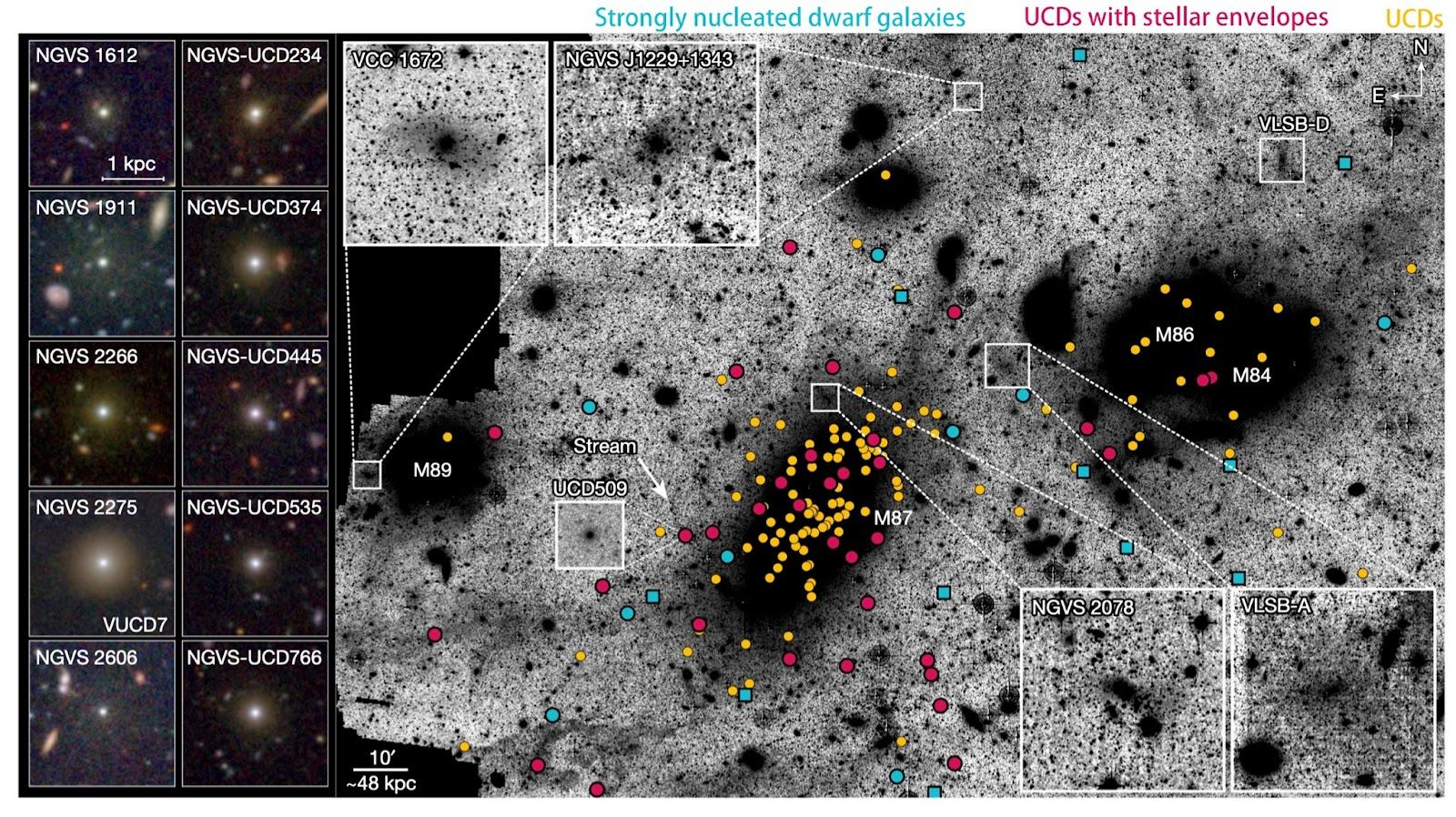New study led by PKU astronomers reveals origin of ultra-compact dwarf galaxies
Nov 13, 2023
Fig.1. The Left two columns show the color images of some strongly-nucleated dwarf galaxies and UCDs with stellar envelopes found in this study. The right panel shows their distribution in the Virgo core region. They are mostly concentrated in the central giant elliptical galaxy, M87. Credit: Wang et al. 2023
Peking University, November 13, 2023: A research team led by Chinese astronomers has, for the first time, observed the complete process of dwarf galaxies evolving into ultra-compact dwarf galaxies (UCDs), according to a study published Thursday in the journal Nature.
Galaxies and star clusters have long been regarded as two distinct classes of objects. Galaxies are born and grow in dark matter halos with a complicated evolution history while star clusters grow out of giant molecular clouds inside galaxies.
Dwarf galaxies are the least luminous class of galaxies and play a crucial role in the evolution of the universe.
Discovered around 2000, UCD gets its name due to its extremely dense inner star system, with a mass and size between a galaxy and a star cluster, and the mystery behind its origin remains unsolved.
Although some research findings in recent years suggest that many UCDs may originate from collapsing dwarf galaxies, the specific process of the evolution has not been confirmed by observations.
Researchers from Peking University, Shanghai Jiao Tong University and research institutions in Canada and the United States have used the Hubble Space Telescope, the Canada-France-Hawaii Telescope, the Gemini North Telescope and other observation equipment to search for about 600 UCD candidates in the Virgo cluster.
They found that about 15 percent of UCDs are surrounded by faint star halos.
These UCDs are highly correlated with strongly nucleated dwarf galaxy, a newly defined class of dwarf galaxy, in terms of morphology, color and spatial distribution, which may be an intermediate stage in the evolution of dwarf galaxies to UCDs, according to the study.
The research team has observed the various stages in the formation of UCDs for the first time, said Wang Kaixiang, first author of the study, who is also a doctoral candidate at Peking University.
The study shows how dwarf galaxies collapse and form UCDs and even clusters, clearly revealing the evolution law, Wang said.
Related reading: PKU astronomers reveal the formation of dense dwarf galaxy 'fossils'
UCD is an important probe for the archaeological study of galaxy clusters, and studying their origin is of great significance for understanding the formation and evolution of galaxies, said Eric Peng, one of the researchers, who is also a member of the NOIRLab in the United States.
The research team will use a number of international large astronomical telescopes to conduct follow-up observations of UCDs in order to unveil more scientific mysteries.
Source:
Xinhua News Agency
